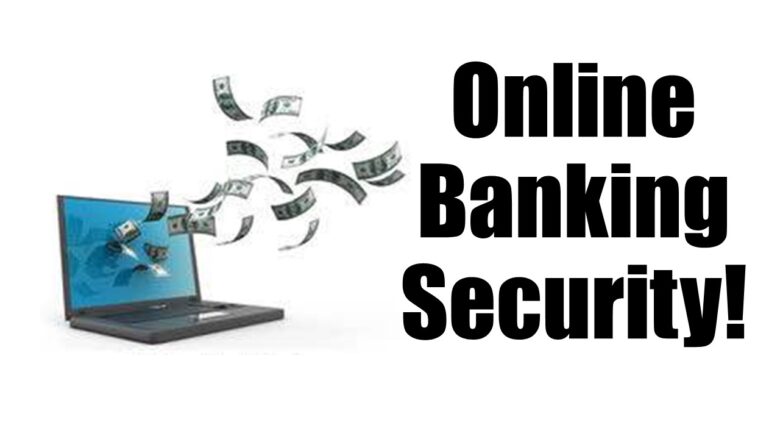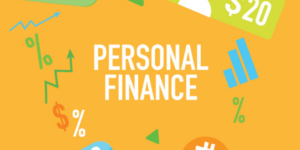In the rapidly developing digital age, online banking has become an integral part of our financial lives. It offers unparalleled convenience and allows us to manage our finances from the comfort of our home. However, with this convenience also comes the responsibility of keeping our financial information safe. As online threats become more common, it is critical to understand and implement strong security measures. This comprehensive guide provides basic online banking security tips to help you protect your hard-earned money and sensitive data.
1. Choose a strong and unique password: One of the fundamental pillars of cybersecurity is a strong password. Avoid using passwords that are easy to guess, such as ‘123456’ or ‘password’. Instead, create unique combinations of letters (uppercase and lowercase), numbers, and symbols. Consider using a passphrase: a combination of words or phrases that are easy for you to remember but difficult for others to guess.
2. Enable two-factor authentication (2FA): Two-factor authentication adds an extra layer of security by requiring a second form of authentication (usually a code sent to your mobile device in addition to a password). This ensures that even if someone gets your password, he or she won’t be able to access your account without a second authentication factor.
3. Keep your devices and software up to date: It is critical to update your devices (computers, smartphones, tablets) and software (including operating systems and antivirus programs) regularly. Updates often include security patches that protect your device against known vulnerabilities, preventing hackers from breaking in.
4. Beware of Phishing Scams: Phishing is a common online scam where scammers pose as legitimate organizations to trick you into disclosing sensitive information. Be careful when clicking links or downloading attachments from unknown sources. Make sure to verify the sender’s email address and double-check the website URL before entering any login information.
5. Use a secure network: Avoid conducting online banking transactions over public Wi-Fi networks, such as those in coffee shops or airports. These networks are often less secure and can be exploited by cybercriminals. Whenever possible, use a secure, password-protected Wi-Fi connection or mobile data network.
6. Check your accounts regularly: By checking your bank statements and transaction history regularly, you can quickly identify unauthorized or suspicious activity. If you notice any discrepancies, please report this immediately to your bank. Many banks also offer mobile apps that provide real-time notifications of transactions, increasing your visibility into account activity.
7. Protect your mobile banking app: If you use a mobile banking app, make sure your device is protected with a strong password, PIN, or biometric authentication (such as fingerprint or facial recognition). Also, only download official banking apps from trusted sources like the App Store or Google Play Store to avoid fake apps designed to steal your information.
8. Be wary of oversharing on social media: Avoid oversharing personal information on social media platforms. Cybercriminals often collect social media profiles for information that can be used to impersonate you or answer security questions. Do not share your full date of birth, address, or account information online.
9. Update your security questions regularly: Many online banking platforms use security questions to verify your identity. Choose questions with hard-to-guess answers and update them regularly. Avoid using generic answers found on social media profiles, such as your pet’s name or the name of your high school.
10. Educate yourself and stay informed: Stay informed on the latest online security threats and best practices. Online security is constantly evolving and understanding current trends and risks can help you make informed decisions to protect your finances. Many reputable websites and organizations offer resources and guides on online safety.
Conclusion
In conclusion, while online banking offers great convenience, it is also crucial to protect your financial information. By following these online banking security tips, you can build a strong defense against potential threats and enjoy the benefits of online banking with confidence. Remember, your proactive approach to online security plays an important role in ensuring your financial security.
FAQs
1. What is the importance of online banking security?
Online banking security is critical to protecting your financial data from cyber threats. It secures your personal data and funds from unauthorized access and possible fraud.
2. How do I create a strong password for my online banking account?
To create a strong password, use a combination of uppercase and lowercase letters, numbers, and symbols. Avoid using easily guessed information, such as birthdays or common words. Consider using a password: a unique combination of words or phrases that is easy for you to remember but difficult for others to guess.
3. What is two-factor authentication (2FA)? Why is it so important?
Two-factor authentication adds an extra layer of security by requiring a second form of verification, such as a code sent to your mobile device. It ensures that even if someone knows your password, he or she can’t access your account without a second authentication factor.
4. How to spot a phishing attempt?
Phishing attempts are often carried out through emails or messages containing suspicious links. Please be careful and verify the sender’s email address and website URL before entering any login details. Legitimate authorities will not request sensitive information via email.
5. What should I do if I notice suspicious activity on my online banking account?
If you notice an unauthorized or suspicious transaction, please contact your bank immediately. Most banks offer 24/7 customer support for reporting such incidents. Prompt reporting can help resolve problems and prevent further financial losses.



